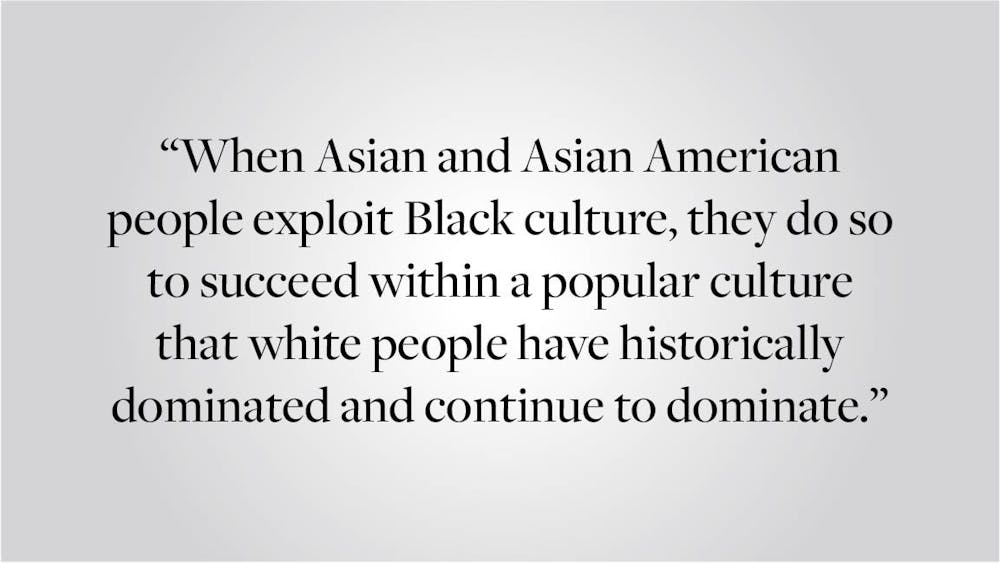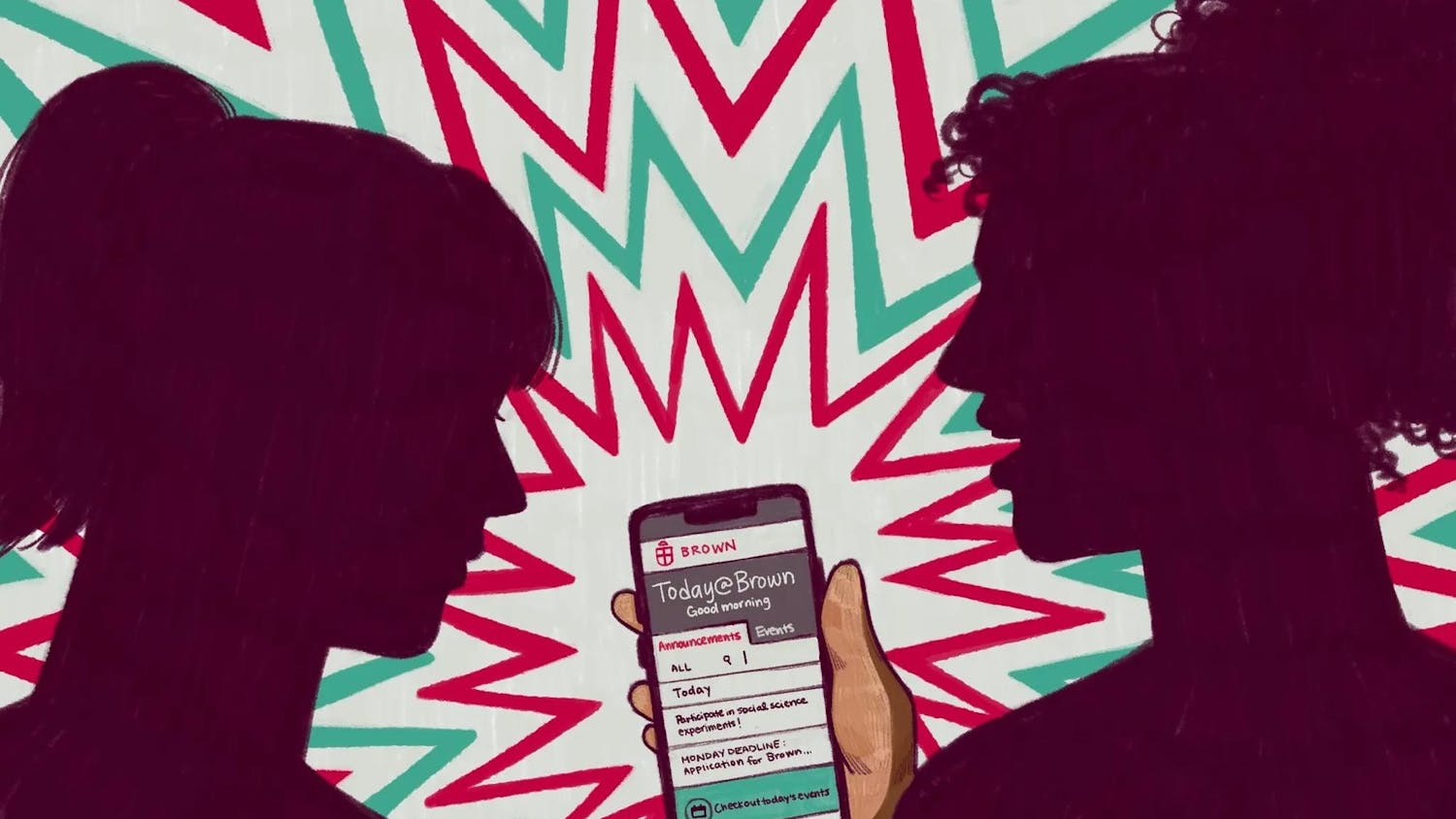Asian Americans are racialized in confusing and contradictory ways. Existing somewhere between oppression and privilege, we are often viewed as being closer to whiteness than other racial minority groups. Concepts like the model minority myth have contributed to this unique racialization, one that pits other racial minority groups against Asian Americans, as if Asian Americans hold the key to achieving the “American Dream.” We are weaponized to justify the oppression of other people of color, all the while still experiencing oppression under white supremacy.
Largely because of this positionality, it’s common for Asian Americans to stay complicit in and perpetuate anti-Black racism and racism against other non-Asian racial minority groups. Nowhere is this more evident than in Asian popular culture, which has found commercial success in the United States. Often employing problematic ideas akin to color-blindness, many Asian and Asian American pop culture figures profit off of the appropriation of Black culture and music without so much as acknowledging, let alone uplifting, Black artists.
Take, for instance, Chinese and Korean American actress Nora Lum, known as Awkwafina, who has starred in movies like “Shang-Chi and the Legend of Ten Rings” and “The Farewell.” Awkwafina has come under fire online for her use of a “blaccent” in her role in “Crazy Rich Asians,” as well as her reliance on Black stereotypes and aesthetics in her rap career. Awkwafina has built a persona on — and profited from — making a mockery of these stereotypes, which have come to be synonymous with the actress’s brand and humor. Yet when asked about this criticism, Awkwafina simply stated that she was “open to the conversation,” and that the issue was “multifaceted and layered.” This response evokes colorblind language, in which people appropriate ideas of equality to divert from direct discussions of race and racial oppression — think “I don’t see color!” Awkwafina similarly used such evasive language to deflect criticism away from the specific issue of her appropriation of Black aesthetic and stereotypes. This language maintains her position of innocence, enabling her to continue shaping her public persona in a way that exploits Blackness.
The issue isn’t unique to Awkwafina. We’ve also seen the appropriation of Black culture within the Asian and Asian American music industry, from Indonesian rapper Rich Brian’s previous stage name that riffed on the n-word to KPop’s longstanding history of imitating Black hip-hop and rap music. As these Asian musicians and genres gain popularity internationally and in the United States, they manipulate and exploit Black culture to maximize clout and profit.
People often argue that public figures like Rich Brian deserve to be forgiven, attributing his mistakes to ignorance about anti-Blackness rather than targeted racism. But this ignorance — which is true of many Asians and Asian Americans who don’t quite understand the scope and pervasiveness of anti-Blackness — is precisely the problem. This ignorance is what allows Awkwafina to claim innocence and what allows KPop bands to ignore their own appropriation of hip-hop and rap. As Asian people living in the United States, our identities are politicized, co-opted and manipulated. It is thus our job to understand the roles we play in the perpetuation of anti-Blackness.
Under white supremacy, groups that are perceived as “closer” to whiteness — wealthier and more educated — are granted greater privilege. When Asian and Asian American people exploit Black culture, they do so to succeed within a popular culture that white people have historically dominated and continue to dominate. Making a mockery of Black stereotypes appeals to white audiences, further distancing Asian Americans from Black Americans and positioning Asian Americans closer to whiteness.
Black-Asian solidarity is crucial, and true solidarity can’t be achieved without understanding the ways in which Asian Americans capitalize off of anti-Blackness. Ending appropriation of Black stereotypes, culture and aesthetics perpetuated by Asian American pop culture figures is not going to end anti-Black racism, but it is a necessary step that we can and should strive for in our fight against white supremacy.
Melissa Liu ’25 can be reached at melissa_y_liu@brown.edu. Please send responses to this opinion to letters@browndailyherald.com and other op-eds to opinions@browndailyherald.com.





